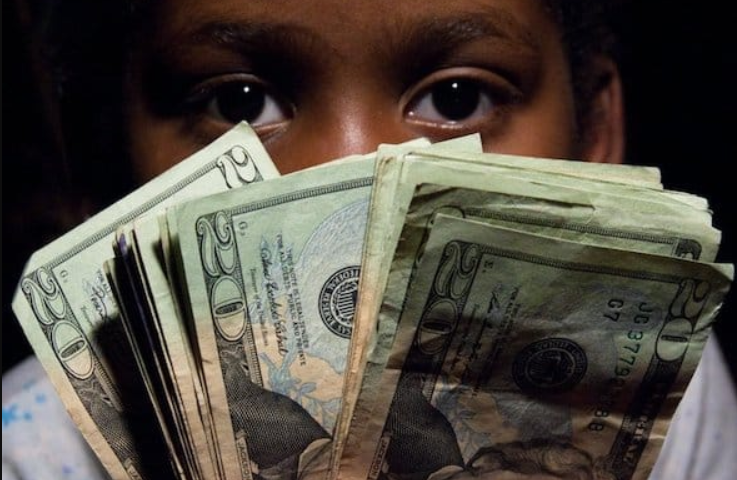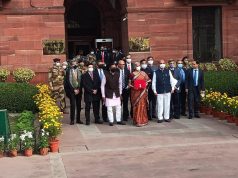In 1997, Bernard Lewis insightfully wrote in his article, “When people realize that things are going wrong, there are two questions they ask. One is, ‘What did we do wrong?’ and the other is ‘Who did this to us?’ The second scenario gives rise to conspiracy theories and a sense of paranoia. However, the initial question prompts a different thought process: ‘How do we put it right?’”
The recent economic history of Bangladesh has seen a continuity of broken economic policies, yet 2023 was the most challenging year ever, even surpassing the difficulties seen during the 2008 global financial crisis. Although outside factors contributed to the beginning of economic problems, a delay in tackling inflation and currency rate swings made matters worse. These problems have gotten worse due to inadequate domestic reform capabilities, poor implementation, and inappropriate policies.
Forex Crisis Unfolding
The currency reserve fell from a peak of around $48 billion in 2021 to a little over $20 billion in February 2024, according to official statistics from the Bangladesh Bank. The decline has been continuous for nearly two years. Bangladesh has been experiencing severe fiscal instability and a dollar crisis, mostly as a result of poor economic management and a lack of adequate monetary policy.
Additionally impacted by this issue is the nation’s capacity to fulfil its financial commitments abroad. For instance, Meghna Group of Industries (MGI), a $1.2 billion Bangladeshi conglomerate, experienced a serious currency issue in January 2023 when trying to import necessities like cooking oil and sugar. Despite having sufficient funds in the local currency, and having paid the full amount to Agrani Bank (the guarantor for the transaction), MGI found themselves short of US dollars. Due to the bank’s inability to settle the payment, they were required to pay $78,000 in shipping demurrage per day while the ships were stranded in the port.
Central Bank Intervention: A Double-Edged Sword
Through manipulation of official and market-based exchange rates, the central bank tried to maintain an artificially inflated value for the local currency. independent of market forces. To make the situation even worse, multiple regulated rates applied to various groups such as exporters, importers, and those sending remittances. However, market-set exchange rates can offer a way out for a nation like Bangladesh, which has a large trade imbalance. Market rates can assist in maintaining trade balance by making imports more expensive and exports cheaper.
Nations like China, Cambodia, India, and Vietnam had adopted a strategic approach by allowing the market to set the rate, leading to a devaluation of their currencies and better policy outcomes. Unfortunately, Bangladesh Bank’s inability to make sound policies led to an average 9.37% inflation rate from November 2022 to October 2023. This high inflation rate has led to a sharp increase in living expenses, which has decreased the purchasing power of consumers.
Towards a Market-Driven Economy
Through the Austrian School’s lens, such central bank interventions are inherently disruptive. It distorts the natural price discovery process of currencies in the free market. The Austrian School advocates for minimal intervention in the economy, emphasizing that prices, including exchange rates, should be set by market forces of supply and demand which is key to economic equilibrium.
According to the foundations of the Austrian School, an economy that is driven by the market and not influenced by the central bank is more robust and able to self-correct. The market would more accurately represent the actual status of the economy and enable a more effective use of resources if the taka was allowed to float freely. This was also a condition set by the IMF for the $4.7B loan it provided to stabilize the economy. However, the government was reluctant to implement such measures because of the powerful RMG (Ready-Made Garment) lobby and import-based economy.
What to Expect Next
Keeping an artificially fixed exchange rate for the Bangladeshi taka, ostensibly to protect the economic interests of the people, is ultimately detrimental to the very group it aims to safeguard. The resources saved from not having to defend a fixed rate could then be redirected to provide targeted policy reforms such as controlling inflation, increasing revenue collection, and improving forex reserves. Policymakers should focus on broad-based and inclusive growth to reduce inequality.
This transformation will not be easy. It will require political will and effective policy implementation. The year 2024 presents a new opportunity for Bangladesh to learn from its past mistakes and to chart a structural change towards a market-driven economy. By minimizing central bank intervention, allowing the Taka to float freely, and letting market forces determine prices, Bangladesh can restore its economic equilibrium. The question remains, “How do we put it right?” The answer lies within the collective will of the nation and its ability to embrace change and forge a new path forward.
Post Disclaimer
The opinions expressed in this essay are those of the authors. They do not purport to reflect the opinions or views of CCS.






